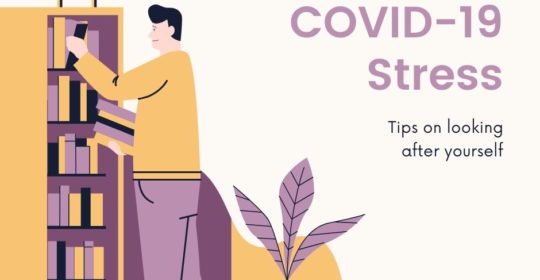
Managing COVID-19 Stress
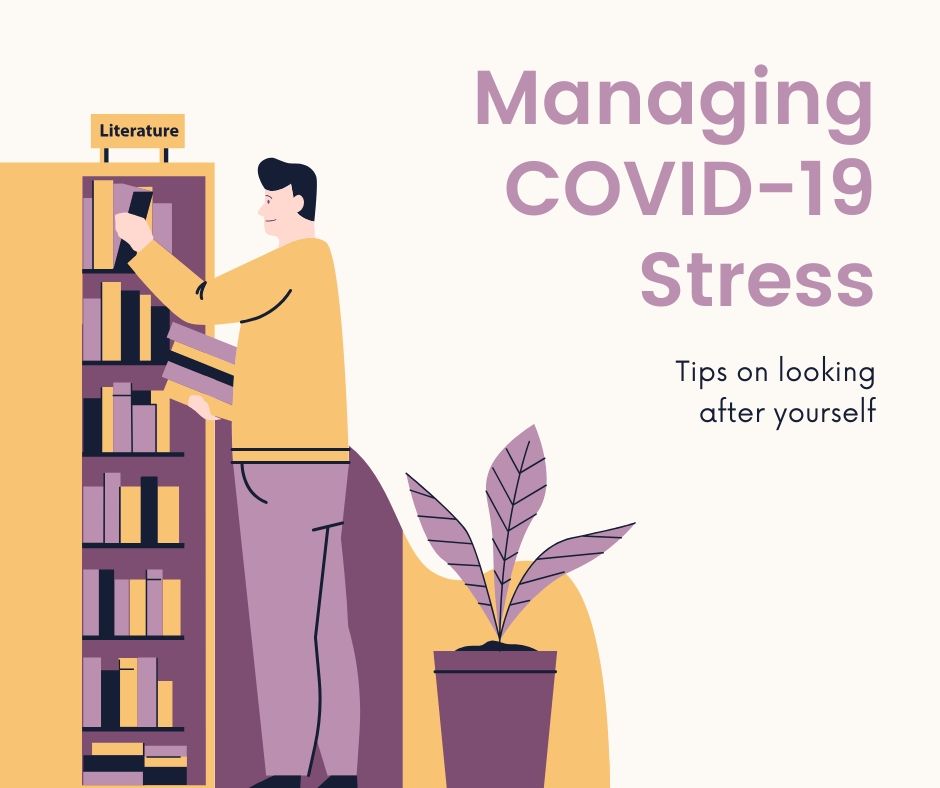
Outbreaks can be stressful
The outbreak of coronavirus disease 2019 (COVID-19) may be stressful for people. Fear and anxiety about a disease can be overwhelming and cause strong emotions in adults and children. Coping with stress will make you, the people you care about, and your community stronger. Stress during an infectious disease outbreak can include:
- Fear and worry about your own health and the health of your loved ones
- Changes in sleep or eating patterns
- Difficulty sleeping or concentrating
- Worsening of chronic health problems
- Worsening of mental health conditions
- Increased use of alcohol, tobacco, or other drugs
Everyone reacts differently to stressful situations
How you respond to the outbreak can depend on your background, the things that make you different from other people, and the community you live in.
People who may respond more strongly to the stress of a crisis include:
- Older people and people with chronic diseases who are at higher risk for severe illness from COVID-19
- Children and teens
- People who are helping with the response to COVID-19, like doctors, other health care providers, and first responders
- People who have mental health conditions including problems with substance use
Take care of yourself and your community
Taking care of yourself, your friends, and your family can help you cope with stress. Helping others cope with their stress can also make your community stronger.
Ways to cope with stress
- Take breaks from watching, reading, or listening to news stories, including social media. Take breaks from watching, reading, or listening to news stories. It can be upsetting to hear about the crisis and see images repeatedly. Try to do enjoyable activities and return to normal life as much as possible and check for updates between breaks.
- Take care of your body.
- Take deep breaths, stretch, or meditate
- Try to eat healthy, well-balanced meals.
- Exercise regularly, get plenty of sleep.
- Avoid alcohol and drugs
- Make time to unwind. Try to do some other activities you enjoy.
- Connect with others. Share your concerns and how you are feeling with a friend or family member. Maintain healthy relationships, and build a strong support system.
Know the facts to help reduce stress
Sharing the facts about COVID-19. Understanding the risk to yourself and people you care about can make an outbreak less stressful. Learn and share the facts about COVID-19 and help stop the spread of rumors. When you share accurate information about COVID-19, you can help make people feel less stressed, make a connection with them, and help stop stigma.
Take care of your mental health
Call your healthcare provider if stress gets in the way of your daily activities for several days in a row.
People with preexisting mental health conditions should continue with their treatment and be aware of new or worsening symptoms. Additional information can be found at the Substance Abuse and Mental Health Services Administration (SAMHSA) Disaster Preparedness.
Learn more about taking care of your emotional health during a stressful event like the COVID-19 outbreak.
Look out for these common signs of distress:
- Feelings of numbness, disbelief, anxiety or fear.
- Changes in appetite, energy, and activity levels.
- Difficulty concentrating.
- Difficulty sleeping or nightmares and upsetting thoughts and images.
- Physical reactions, such as headaches, body pains, stomach problems, and skin rashes.
- Worsening of chronic health problems.
- Anger or short-temper.
- Increased use of alcohol, tobacco, or other drugs.
Source:
- CDC
- WHO



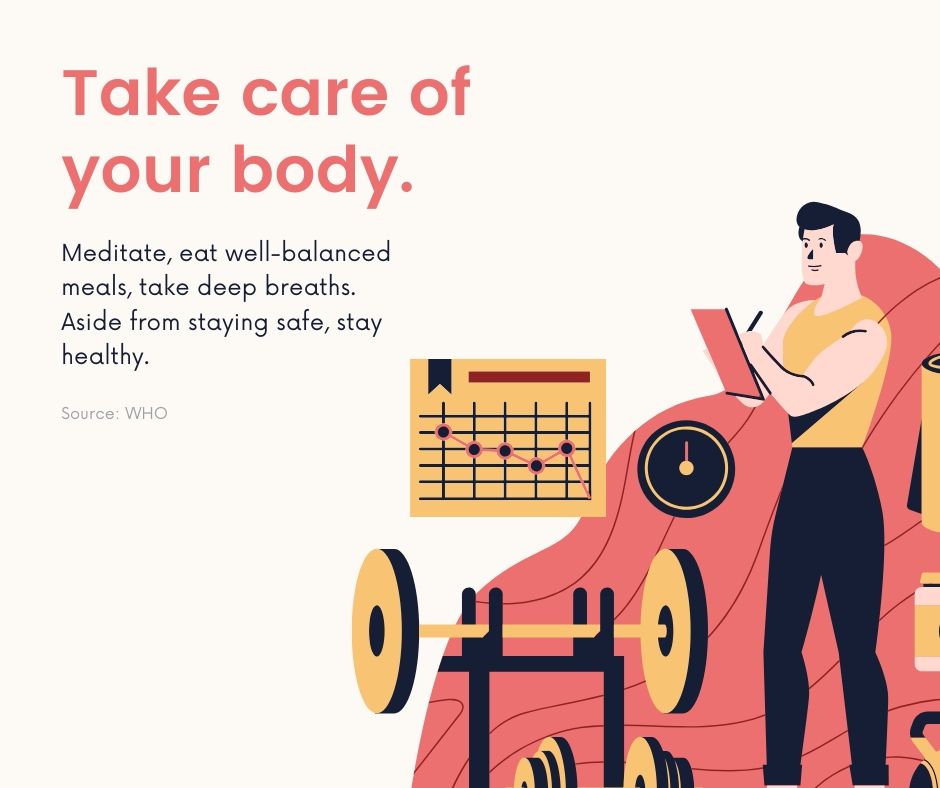
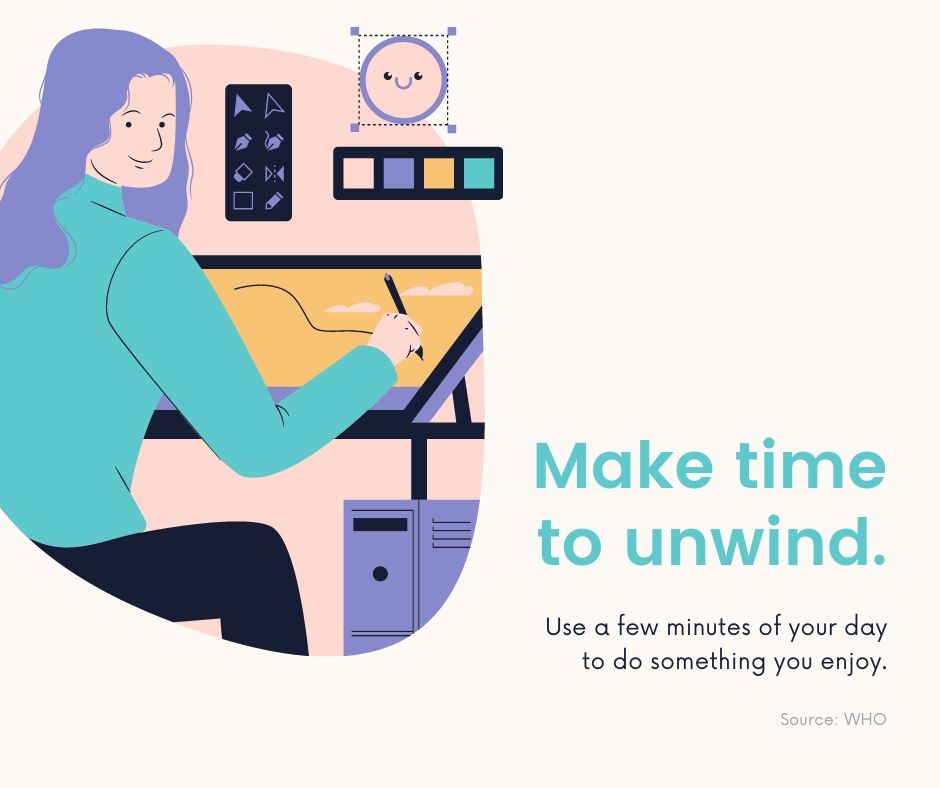
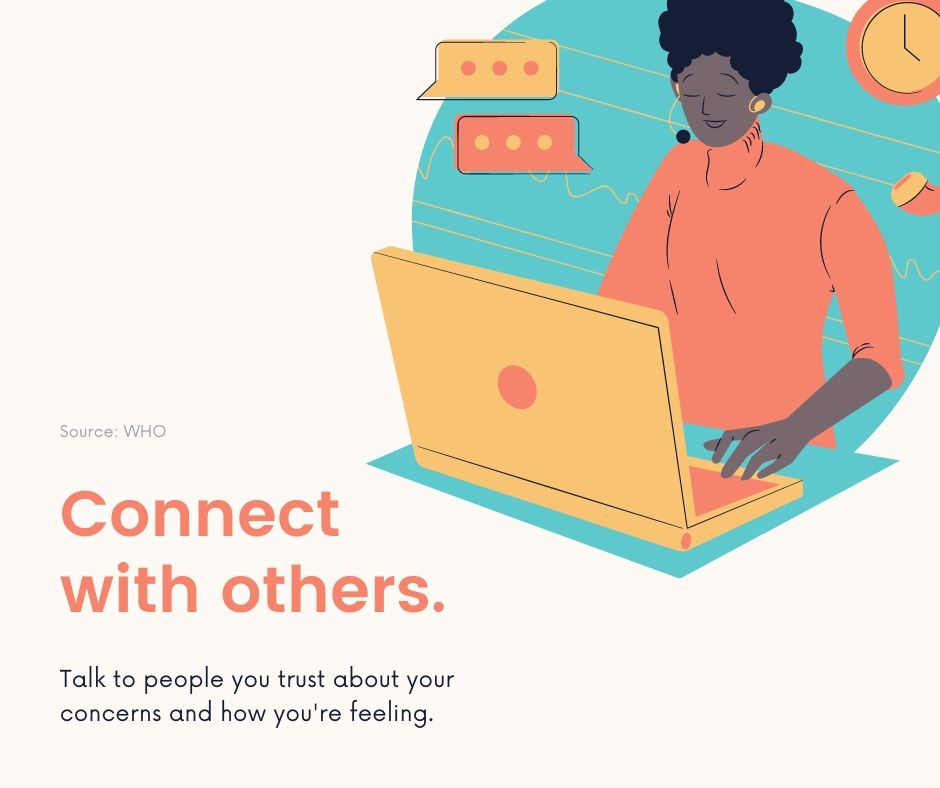
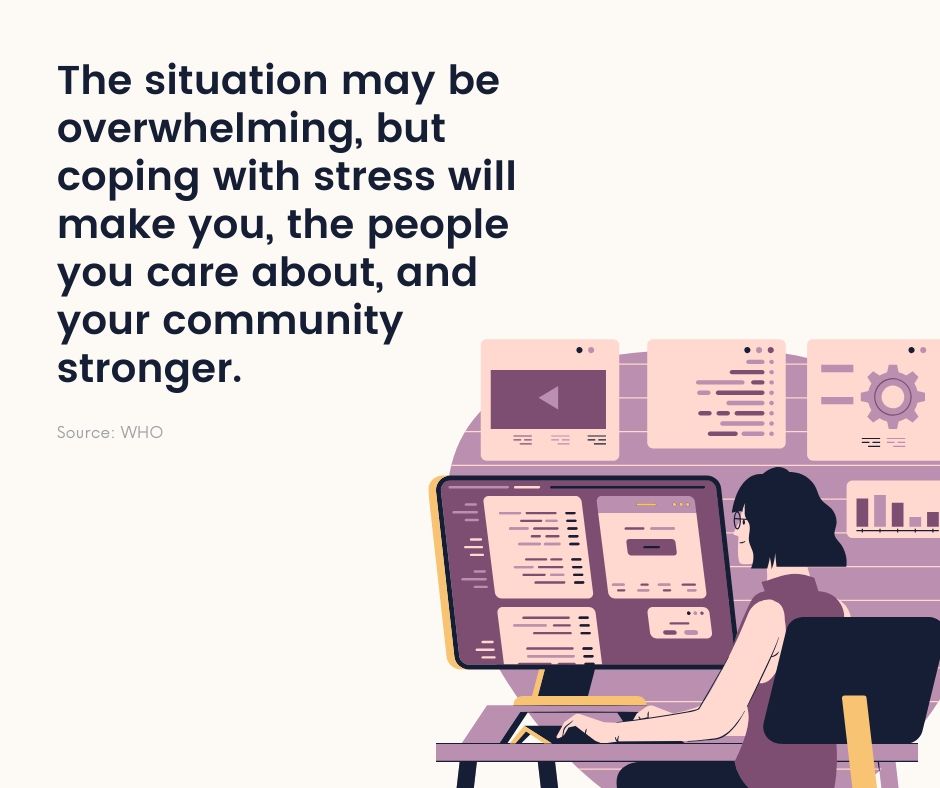
Most Commented